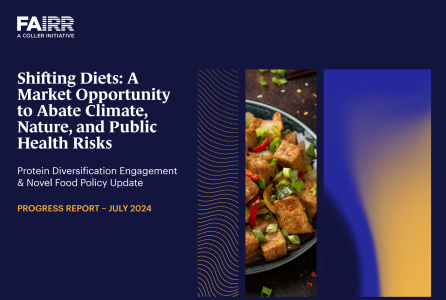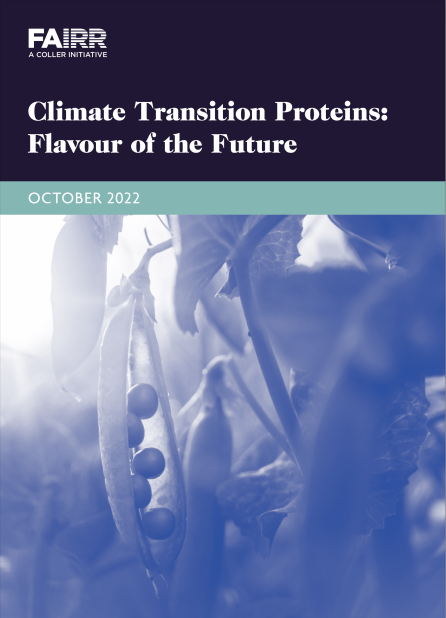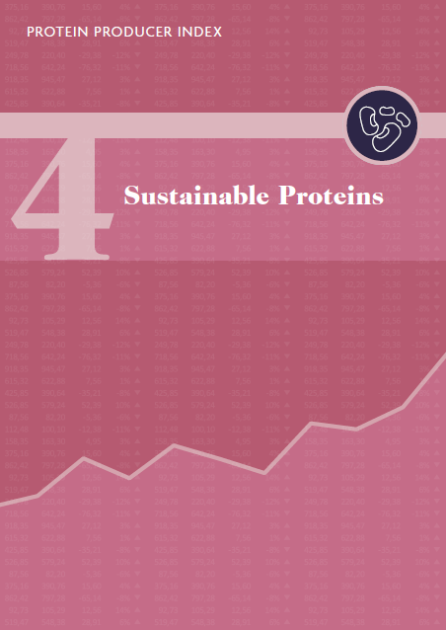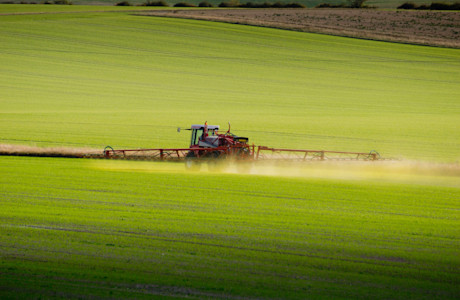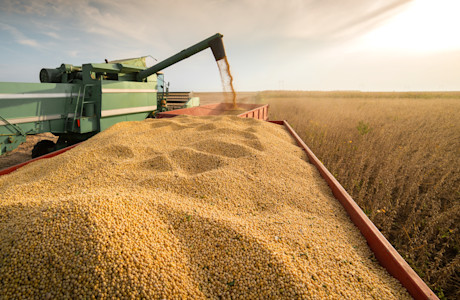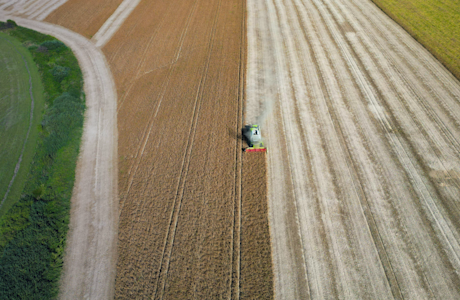
Alternative Proteins
Theme Overview
The climate crisis, coupled with global food and nutritional security concerns, has positioned alternative proteins as a vital solution. At the outset, alternative proteins (plant-based, fermentation and cultivated technologies) are less resource-intensive compared to their conventional animal protein counterparts. Nearly 14.5% of global GHG emissions are attributed to livestock production. The sector is also the number one cause of deforestation due to cattle ranching and soy production, a significant driver of water scarcity and pollution risks and the largest user of antibiotics. Alternative proteins can and should play a role in mitigating the environmental impacts of the global demand for protein.
The FAIRR Initiative engages key players in the food sector to support and enable a dietary transition in line with planetary boundaries, and is working to evaluate the sustainability of novel technologies.
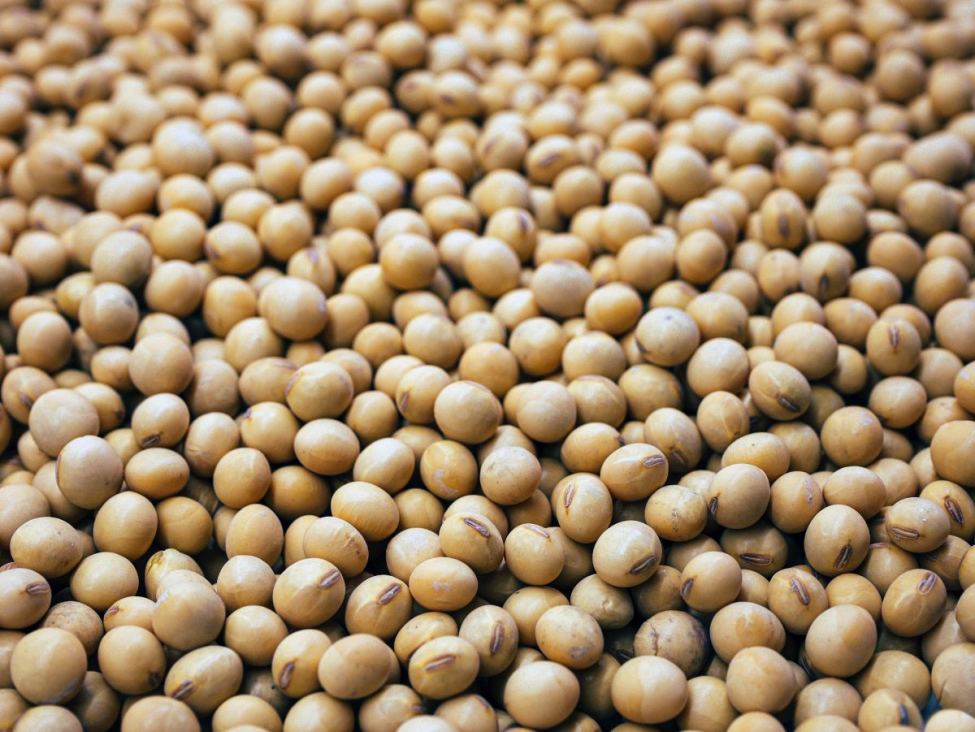
Latest Activity
Report Launch: Protein Diversification Phase 1 Progress Report
Explore the latest report, which assesses how 20 of the largest food retailers and manufacturers are diversifying their protein portfolios as a means to reduce the material risks associated with animal protein production and seize new market opportunities.
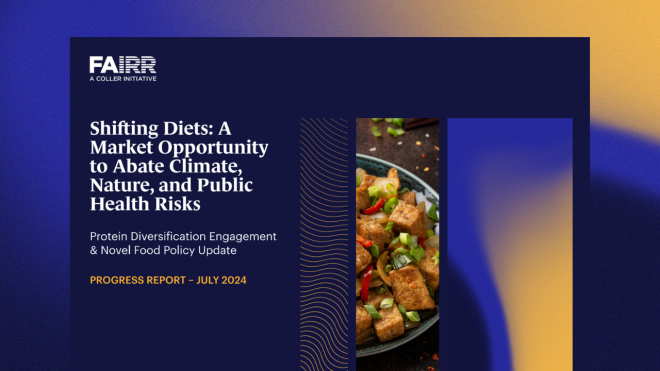
New Insight: Protein Diversification: A Tool to Address Climate, Nature, and Public Health Risks'
The overconsumption of animal protein in Western geographies is leading to adverse impacts on climate, nature, and human health. FAIRR’s new insight piece explores how transitioning to the consumption of plant-based proteins can address these three impacts.

Engagement Launch: Protein Diversification Engagement
Following six successful years of engaging companies on the need to diversify their protein portfolio, FAIRR has closed its Sustainable Proteins engagement. Building on key learnings, integrating the latest scientific guidance, and acknowledging market changes, FAIRR is pleased to launch its Protein Diversification engagement with 20 global food manufacturers and retailers.

Alternative Proteins Framework has launched
The FAIRR Initiative, in collaboration with the Good Food Institute (GFI), has recently launched two ESG reporting frameworks for alternative proteins. These frameworks were developed in response to the growing interest in alternative proteins, as well as investors’ desire to measure and analyse the ESG characteristics of alternative protein companies and production lines.
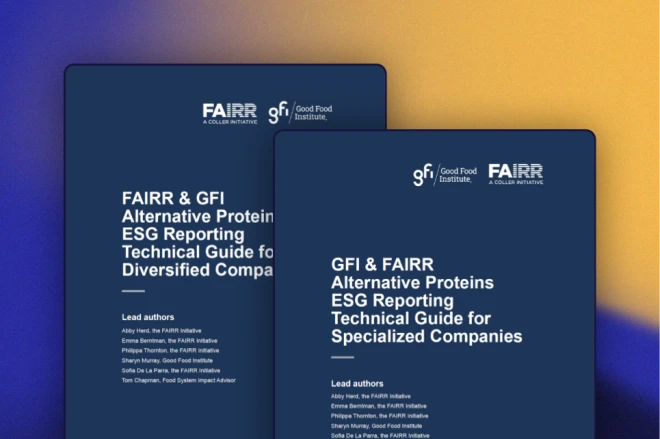
Climate Transition Proteins: Flavour of the Future Report has launched
Our Sustainable Proteins Hub is an interactive tool that enables investors to assess how 23 leading food companies are using protein diversification to drive growth and build climate-aligned portfolios.
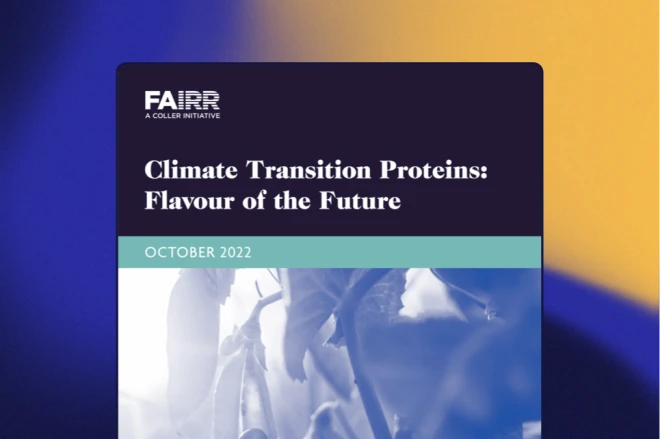
Report Launch: Protein Diversification Phase 1 Progress Report
Explore the latest report, which assesses how 20 of the largest food retailers and manufacturers are diversifying their protein portfolios as a means to reduce the material risks associated with animal protein production and seize new market opportunities.
New Insight: Protein Diversification: A Tool to Address Climate, Nature, and Public Health Risks'
The overconsumption of animal protein in Western geographies is leading to adverse impacts on climate, nature, and human health. FAIRR’s new insight piece explores how transitioning to the consumption of plant-based proteins can address these three impacts.
Engagement Launch: Protein Diversification Engagement
Following six successful years of engaging companies on the need to diversify their protein portfolio, FAIRR has closed its Sustainable Proteins engagement. Building on key learnings, integrating the latest scientific guidance, and acknowledging market changes, FAIRR is pleased to launch its Protein Diversification engagement with 20 global food manufacturers and retailers.
Alternative Proteins Framework has launched
The FAIRR Initiative, in collaboration with the Good Food Institute (GFI), has recently launched two ESG reporting frameworks for alternative proteins. These frameworks were developed in response to the growing interest in alternative proteins, as well as investors’ desire to measure and analyse the ESG characteristics of alternative protein companies and production lines.
Climate Transition Proteins: Flavour of the Future Report has launched
Our Sustainable Proteins Hub is an interactive tool that enables investors to assess how 23 leading food companies are using protein diversification to drive growth and build climate-aligned portfolios.



